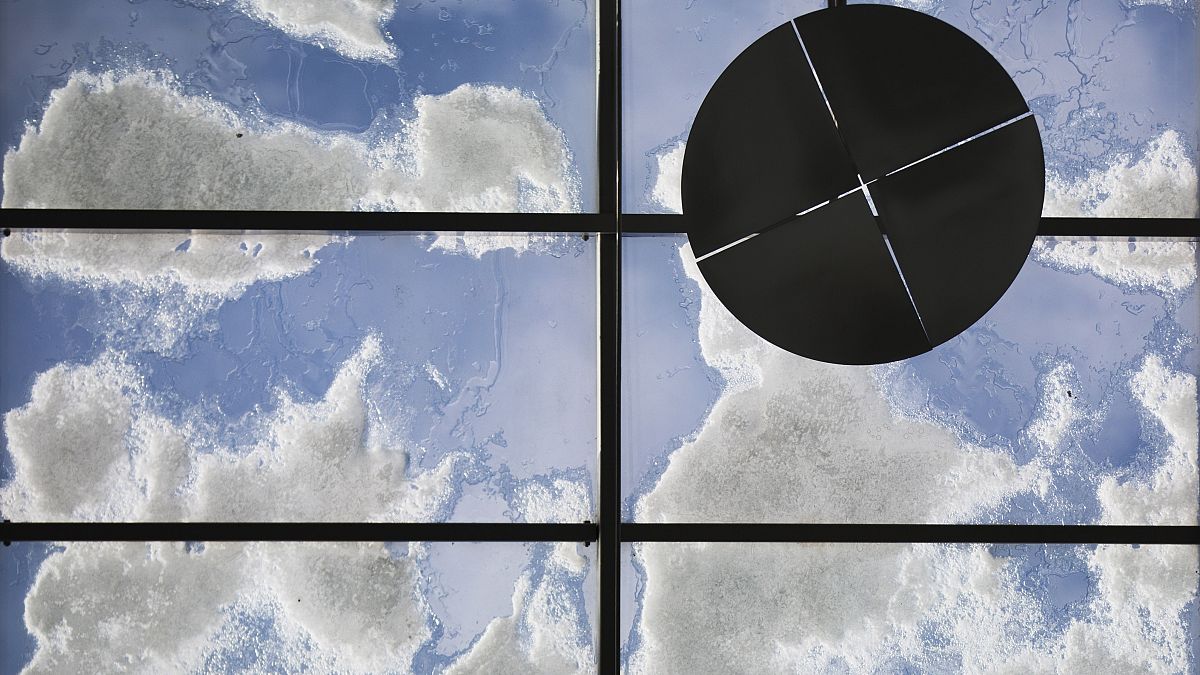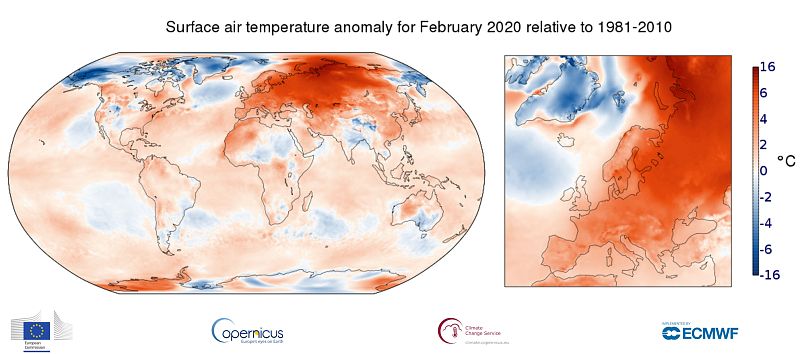The Copernicus Climate Change Service (C3S) announces that the past three-month period from December 2019 to February 2020, was by far the warmest on record for Europe.
Scientists say that Europe has just seen it's hottest winter since records began. From the start of December to the end of February, the average temperature was an extraordinary 3.4 degrees Celsius above the norm from 1981-2010 and 1.4 degrees higher than the previous record set in 2015-16.
"Compared to previous winters, this has been unusually warm," says Carlo Buontempo. director of Copernicus. "We see this variation from year to year, especially in the tropics, but this really stands out as being a very remarkable and very warm, mild winter for Europe."
Rise isn't only due to global warming
The EU’s Copernicus Climate Change Service data dates back to 1855. It says seasonal temperatures are often subject to major fluctuations year-on-year.
"1924-25 was similarly warm, with a couple of degrees above the climate at that time. So you can have a couple of degrees variation above the baseline and you can expect to have some of those every 50-100 years. They are unusual but they are part of the natural variability," says Buontempo.
The unseasonal heat has led to the failure of the ice-wine harvest in Germany and to the strange spectacle of snow having to be helicoptered into a ski resort in France.
"I see climate having an impact on almost all our activities but when you see these large anomalies then you really understand first hand what this means. The failed ice wine season in Germany, the incredibly warm winter in Russia and Finland and some parts of Northern Europe, the impact on Reindeer herding for example because of the warm temperatures," says Buontempo.
WATCH: Carlo Buontempo, Director of Copernicus Climate Change Service says these temperature rises are significant

